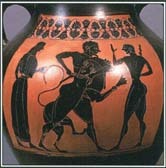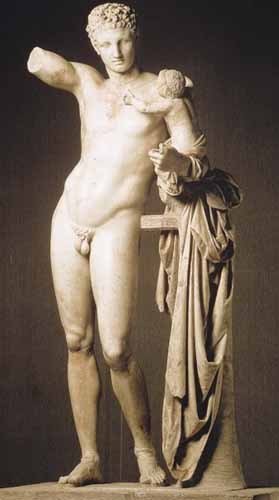Stan Getz Quartet, Live In Dusseldorf - The Thrill Is Gone - Duration: 6:48.
- 11 months ago
- 816 views
Stan Getz (ts), Jan Johansson (p), Ray Brown (b), Ed Thigpen (ds) Album:" Stan Getz Quartet / Live In Dusseldorf 1960" ...Stan Getz - One of the greatest saxophonists of all time - Duration: 2:17:56.
- 2 years ago
- 490,559 views
Stan Getz – Tribute To Stan Getz, Over two hours of swing and romantic jazz with one of the greatest saxophonists of all time ...
Tuesday, July 18, 2017
Wednesday, April 19, 2017
01:13:47 - The Thrill Is Gone
-
01:13:47 - The Thrill Is Gone
-
-Pavarotti & B.B. King The Thrill Is Gone https://t.co/Y38WS5I54j via @YouTube— Mike Nova (@mikenov) April 19, 2017
Pavarotti & B.B. King The Thrill Is Gone - Duration: 4:48.
- 4 years ago
- 254,494 views
Pavarotti & B.B. King The Thrill Is Gone 1999 friends friend.
Jose Feliciano - The Thrill is Gone - Duration: 5:05.
- 9 years ago
- 750,039 views
Jose Feliciano sings The Thrill is Gone.
ARETHA FRANKLIN - The Thrill Is Gone - Duration: 4:42.
- 5 years ago
- 104,873 views
wow! Ms Aretha smokes this one. Recorded in 1970 after divorce from 1st husband Ted White - ending a near 10 year relationship ...
Monday, February 20, 2017
The Hermes Songs - Песни Гермесу

The Hermes Songs
Long legged chuckster
ВОРОВСКАЯ ЛЮБОВЬ - Подражание Есенину
Strange mystery of child
The Song of The Headless Horseman
The Stone
In A Nutshell
La Noche Oscura, The Dark Night Of My Soul
_____________________________________________

Hermes was the Greek god of commerce, son of Zeus and Maia. Quick acting and cunning, he was able to move swiftly between the world of man and the world of gods, acting as a messenger of the gods and the link between mortals and the Olympians.
Hermes - Greek Mythology
<a href="http://www.greek" rel="nofollow">www.greek</a>mythology.com/Olympians/Hermes/hermes.ht
With the recent news about the NASA Messenger probe orbiting the planet Mercury and today being the first day of a Mercury retrograde period, I’ve got Mercury on my mind and thought this might be a great time to post something about the ancient Roman god Mercury, or more specifically his Greek counterpart Hermes.
Hermes is the Greek god of crossroads, boundaries, communication, travel, commerce, shepherds and cowherds, orators, poets and writers, athletes, and thieves. Hermes is a messenger between the gods and men and also a psychopomp escorting the dead to the Underworld. Hermes is one of only a few gods who could cross to and from the Underworld without hindrance. He is also a trickster god.
Hermes is most often portrayed wearing a winged cap, winged sandals, and carrying either a caduceus (staff entertwined by two serpents) or a kerykeion (a staff topped with a symbol similar to the astrological symbol for Taurus). His other symbols include purses or bags, roosters, and tortoises.
Hermes protects and takes care of travelers, miscreants, harlets, crones, and thieves. As a runner himself, he is also always looking out for runners and athletes. People would offer him sacrifices before taking a trip to ensure a safe and easy journey.
Originally, Hermes was an older, bearded, phallic god of boundaries. Piles of stones called herms were placed at boundaries and as wayside markers. Later these were replaced with rectangular pillars with a Herme’s bearded head and an erect phallus. In Athens, these were even placed outside houses for good luck.
Hermes later became the youthful athlete that we are most familiar with. His realm included the gymnasia and Greek artists revised his statues to reflect a handsome, athletic youth and his statues along with those of Eros and Heracles were often found in the gymnasia.
Eros, Hermes, and Heracles made up a homoerotic trinity of gods presiding over homosexual relations. Eros bestowed the blessing of physical beauty onto male lovers. Heracles offered strength to male sexual partners. Hermes bestowed lovers with the gift of eloquence.
Like most Greek gods, Hermes had both female and male lovers. Hermes male lovers included Amphion, Antheus, Chryses, Crocus, Perseus, and Therses.
Later on in the third century CE Egypt, Hermes was invoked as “Hermes of the Underworld” in both homoerotic and lesbian love spells. This is evidenced in a collection of texts known as the Greek Magical Papyri used in a Hellenistic system of magic.
Read the whole story
· ·
Hermes (/ˈhɜːrmiːz/; Greek: Ἑρμῆς) is an Olympian god in Greek religion and mythology, the son of Zeus and the Pleiad Maia, and the second youngest of the Olympian gods (Dionysus being the youngest).
Hermes is considered a god of transitions and boundaries. He is described as quick and cunning, moving freely between the worlds of the mortal and divine. He is also portrayed as an emissary and messenger of the gods;[1] an intercessor between mortals and the divine, and conductor of souls into the afterlife. He has been viewed as the protector and patron of herdsmen, thieves,[2] oratory and wit, literature and poetry, athletics and sports, invention and trade,[3] roads, boundaries and travelers.[4]
In some myths, he is a trickster and outwits other gods for his own satisfaction or for the sake of humankind. His attributes and symbols include the herma, the rooster, the tortoise, satchel or pouch, winged sandals, and winged cap. His main symbol is the Greek kerykeion or Latin caduceus, which appears in a form of two snakes wrapped around a winged staff with carvings of the other gods.[5]
In the Roman adaptation of the Greek pantheon (see interpretatio romana), Hermes is identified with the Roman god Mercury,[6] who, though inherited from the Etruscans, developed many similar characteristics such as being the patron of commerce.
Subscribe to:
Comments (Atom)












